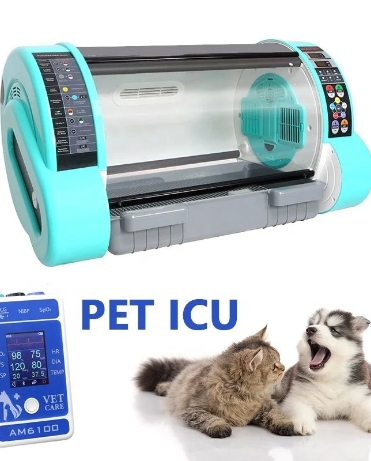The Vital Role of Animal ICUs Incubators in Saving Lives
Introduction:
In the world of veterinary medicine, the use of animal ICUs (Intensive Care Units) and incubators has become increasingly crucial in providing specialized care and saving the lives of critically ill animals. These advanced medical technologies offer a controlled environment and essential support systems that promote healing and recovery. This article aims to explore the functionality and significance of animal ICUs and incubators in veterinary practice.
Body:
-
Temperature and Humidity Control:
Animal ICUs and incubators play a vital role in regulating temperature and humidity levels to create an optimal environment for the animal’s recovery. These devices provide precise control over ambient conditions, ensuring that the animal’s body temperature remains stable. Maintaining a consistent and appropriate temperature is crucial for recovery, especially for neonatal animals and those with compromised immune systems. -
Oxygen Therapy:
ICUs and incubators are equipped with oxygen supply systems that deliver supplemental oxygen to animals with respiratory distress or compromised lung function. This feature aids in oxygen saturation, alleviating breathing difficulties and enhancing the animal’s overall well-being. Oxygen therapy is particularly critical for animals with pneumonia, near-drowning incidents, or those recovering from anesthesia. -
Monitoring and Diagnostic Tools:
Animal ICUs and incubators are equipped with an array of monitoring devices and diagnostic tools. These include vital sign monitors, such as heart rate, respiratory rate, blood pressure, and oxygen saturation monitors. Additionally, they may have built-in electrocardiography (ECG) capabilities, allowing veterinarians to assess cardiac health. These tools enable continuous monitoring of the animal’s condition, ensuring timely intervention and appropriate adjustments to the treatment plan. -
Isolation and Infection Control:
ICUs and incubators provide a controlled environment that helps prevent the spread of infectious diseases and protects animals from external pathogens. Isolation chambers within these units create a physical barrier, minimizing the risk of cross-contamination between patients. This feature is particularly beneficial for animals with contagious illnesses or those recovering from surgeries, where infection prevention is crucial for successful recovery. -
Nutritional Support:
ICUs and incubators often feature infusion pumps and specialized feeding systems to deliver precise amounts of fluids, medications, and nutrition to animals. These systems can be adjusted to meet the specific needs of each patient, ensuring they receive the necessary nutrients and medications. This targeted approach to feeding supports the animal’s immune system, aids recovery, and promotes optimal growth and development. -
Post-operative Care:
Animal ICUs and incubators are instrumental in providing post-operative care for animals recovering from surgeries. They offer a safe and controlled environment where the animal’s vital signs and incision sites can be continuously monitored. This close monitoring helps detect any signs of complications or infections promptly, allowing veterinarians to intervene and provide appropriate treatment.
Conclusion:
Animal ICUs and incubators have revolutionized veterinary medicine by providing essential care and support for critically ill animals. These advanced technologies ensure optimal temperature, humidity, and oxygen levels, while also facilitating monitoring, diagnosis, and treatment. By creating a controlled environment that prevents infection and enables targeted nutrition and medication administration, these devices significantly contribute to the successful recovery of animals in need. The continuous advancements in this field continue to enhance animal healthcare, ultimately saving countless lives in the process.


